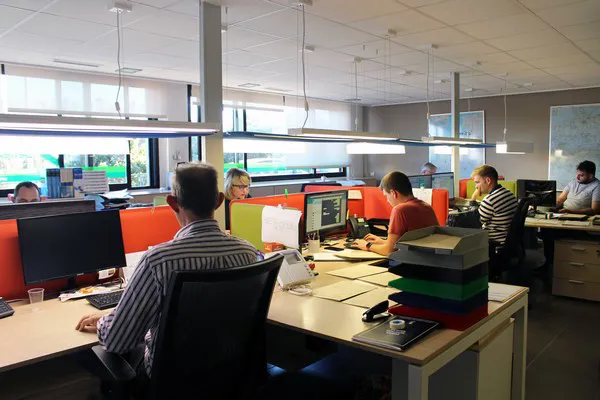Gerard Mostert is a logistics provider and owns Betrex in Spain. The seasons, therefore, play a part in his business. Fruit and vegetable exports make up more than 80% of this. "Summers are usually quiet for us. In August and September, we often limit ourselves to Dutch imports. And a few fruits and vegetables that are in season in Spain."
"I drive home through the Spanish fields. That's from my office in Gandia (south of Valencia). I can see the first small oranges hanging on the trees. Then I already start looking forward to the busy autumn when we can transport plenty of Spanish products again. That's from Huelva in the south to Catalonia in the north."
 Gerard Mostert
Gerard Mostert
Quieter summer
However, this summer was quieter than ever for Gerard. "Fewer tomato, lettuce, and overseas imports arrived at Rotterdam Port this year. I think that was a direct result of the coronavirus that's gripping Europe. Spain missed out on millions of tourists this summer. These people account for a significant proportion of consumption around that time."
"Fresh orange juice is a telling example of this. Most summer tourists have no idea that the oranges they juice in Spain are often supplied by us, from the Netherlands. Spaniards know this and prefer to choose seasonal fruit like melons. COVID-19 has, therefore, mainly affected the Spanish hospitality industry. Considering what I see around me, restaurant visits have dropped by 20 to 25%. I've dined out 90% less myself. That just goes to show this virus' impact."
Exports on par
Betrex maintained good export figures until the summer. "We can't complain about anything in that respect," says Gerard. "That applies to our fruit and vegetable transportation too. We also still transport some industrial goods for several regular clients. But, the coronavirus pandemic brought that to a complete halt. I still don't think we should complain."
"The drivers are having a harder time, certainly when they make international trips. For example, it isn't easy to find a resting spot or decent bathrooms along the route. A lot of these are closed. There is another problem in, especially Catalonia. The government has, again, closed all the restaurants there."
From full trucks to groupage and just-in-time deliveries
Gerard has seen the market change too. "Five, ten years ago, clients usually ordered full truckloads of oranges and tangerines on a Monday. And would have a new shipment come from Spain on a Thursday. If we received an order for, say, ten pallets, we could always offer to make it 12. If that fitted in better with the remaining load. So, you filled the truck, usually without any problems either."

Office in Spain
"That's not how it works anymore. If clients order ten pallets, it's ten and no more. Deliveries are more often fragmented now too. Clients want to be supplied with Spanish products every day. Nowadays, it isn't easy to buy an entire truckload. As a logistics service provider, the just-in-time delivery trend makes us much more dependent on planning groupage freight to the north. That makes our work as a forwarding agent much more challenging. It requires a lot of fitting things into each other."
"You sometimes have to make detours too. What happens when, for example, a fresh vegetable consignment is ready to be loaded further along the route. But a load still needs to be prepared in the south. Do you wait, or do you drive those extra kilometers to get back on track with the timetable? Our scheduled guys sometimes struggle with this but always bring it to a good end. Luckily I'm not so concerned with that these days," laughs Gerard.
By train?
Road transportation is flexible. It, therefore, lends itself well to these just-in-time deliveries. However, recently, other forms of transport, like the railway, are increasingly being considered. But Gerard points out that you can't conclude that clients' full shipments have moved from road to rail. "It's a general market trend to look for transportation alternatives. I, nevertheless, don't think existing services can compete with road transport in this respect yet."
We've played our part in such an intermodal rail service," Mostert adds. "But I think there are several drawbacks. These include possible railway delays. With 40 of my trucks are on the road, there might well be a couple of delays. However, if an entire train is delayed, I'm sure all those loads won't reach their destination on time. A truck is far more flexible. What's more, if something happens on the road, you can make a detour. That's not possible by train."
But Gerard supports these intermodal services. "Should all transportation be more sustainable and greener way, we should certainly do it, with a view to the future. This could be a solution, especially for a constant supply of large quantities of fruit and vegetables. It just has to be attractive to participate in such a service," Gerard concludes.
 Voor meer informatie:
Voor meer informatie:
Angela Mostert
BETREX
Tel: (+34) 96.287.80.80 (Spanje)
Mob: +34 628 862 966
angelamostert@betrex.es
www.betrex.es
